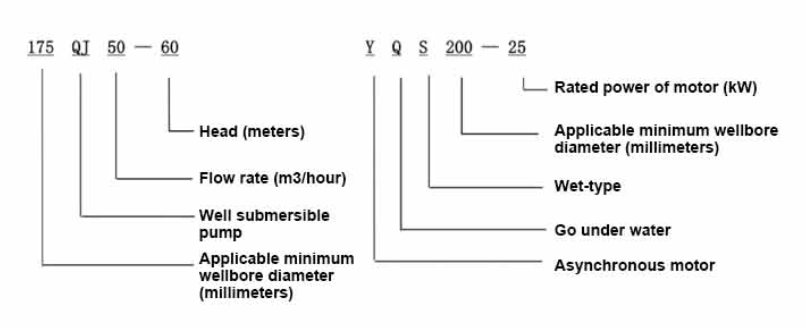Oct . 18, 2024 11:53 Back to list
Submersible Mixer Solutions for Efficient Liquid Homogenization and Mixing Applications
Exploring the World of Submersible Mixers
Submersible mixers are essential equipment designed for efficient mixing and homogenization of liquids in a wide range of industrial applications. These robust devices operate submerged in the liquid medium, ensuring optimal mixing of materials such as wastewater, sludge, chemicals, and various agricultural products. With their unique design and functionalities, submersible mixers play a crucial role in ensuring process efficiency, product quality, and environmental sustainability.
What is a Submersible Mixer?
A submersible mixer is a device that integrates a motor and a propeller or stirrer, specifically designed to operate underwater. Unlike traditional mixers that are installed above the liquid surface, submersible mixers dive directly into the liquid, allowing for better mixing efficiency due to their proximity to the mixing zone. The mixers are usually made from corrosion-resistant materials, ensuring a longer lifespan even in harsh environments.
Applications of Submersible Mixers
1. Wastewater Treatment One of the most common applications of submersible mixers is in wastewater treatment plants. These mixers help in maintaining uniformity in the tank by mixing sludge and wastewater, facilitating better treatment processes. By preventing the settling of solids, they ensure that the aerobic processes run efficiently and that nutrients are evenly distributed.
2. Biogas Plants In biogas production, proper mixing is vital to maintain the health of anaerobic digestion. Submersible mixers ensure that the substrate is evenly distributed, promoting the growth of anaerobic bacteria, which helps in the efficient breakdown of organic materials to produce biogas.
3. Chemical and Pharmaceutical Industries Submersible mixers are also extensively used in the chemical and pharmaceutical industries, where precise mixing is critical for product quality. They help in the dissolution of solids, blending of liquids, and ensuring homogeneous mixtures, which is crucial for the efficacy of chemical reactions and the final product.
4. Agriculture In the agricultural sector, submersible mixers are used in the production of fertilizers and in the management of manure. They ensure that liquid fertilizers are uniformly mixed before application, maximizing efficiency and preventing waste.
submersible mixer

Advantages of Submersible Mixers
1. Energy Efficiency Submersible mixers are designed to be energy-efficient, often requiring less power compared to traditional mixers while delivering higher mixing performance. This results in lower energy costs and a reduced carbon footprint.
2. Space Saving Their compact design allows for installation in smaller spaces, making them ideal for facilities with limited room. Unlike top-entry mixers, which often require substantial overhead clearance, submersible mixers can be installed in tight spaces without sacrificing performance.
3. Maintenance and Durability Submersible mixers are built for durability, often featuring high-quality seals and materials that withstand corrosion and wear. This results in lower maintenance requirements and longer operational lifespans, ultimately reducing operational costs.
4. Versatility These mixers can handle a wide range of fluids, including viscous liquids, making them suitable for various applications across different industries.
Conclusion
As industries continue to evolve and seek more efficient ways to manage processes, submersible mixers stand out as a vital component in numerous applications. Their ability to provide efficient mixing, maintain product quality, and contribute to environmental sustainability makes them an increasingly popular choice in wastewater treatment, chemical manufacturing, agricultural processes, and biogas production.
Investing in the right submersible mixer can lead to significant improvements in productivity and operational efficiency. As technology advances, we can expect further enhancements in the design and functionality of submersible mixers, setting the stage for even broader applications in the future. Whether you're in wastewater management, food production, or chemical processing, understanding and utilizing submersible mixers can greatly benefit your operational effectiveness and overall success.
-
Submersible Water Pump: The Efficient 'Power Pioneer' of the Underwater World
NewsJul.01,2025
-
Submersible Pond Pump: The Hidden Guardian of Water Landscape Ecology
NewsJul.01,2025
-
Stainless Well Pump: A Reliable and Durable Pumping Main Force
NewsJul.01,2025
-
Stainless Steel Submersible Pump: An Efficient and Versatile Tool for Underwater Operations
NewsJul.01,2025
-
Deep Well Submersible Pump: An Efficient 'Sucker' of Groundwater Sources
NewsJul.01,2025
-
Deep Water Well Pump: An Efficient 'Sucker' of Groundwater Sources
NewsJul.01,2025
-
 Submersible Water Pump: The Efficient 'Power Pioneer' of the Underwater WorldIn the field of hydraulic equipment, the Submersible Water Pump has become the core equipment for underwater operations and water resource transportation due to its unique design and excellent performance.Detail
Submersible Water Pump: The Efficient 'Power Pioneer' of the Underwater WorldIn the field of hydraulic equipment, the Submersible Water Pump has become the core equipment for underwater operations and water resource transportation due to its unique design and excellent performance.Detail -
 Submersible Pond Pump: The Hidden Guardian of Water Landscape EcologyIn courtyard landscapes, ecological ponds, and even small-scale water conservancy projects, there is a silent yet indispensable equipment - the Submersible Pond Pump.Detail
Submersible Pond Pump: The Hidden Guardian of Water Landscape EcologyIn courtyard landscapes, ecological ponds, and even small-scale water conservancy projects, there is a silent yet indispensable equipment - the Submersible Pond Pump.Detail -
 Stainless Well Pump: A Reliable and Durable Pumping Main ForceIn the field of water resource transportation, Stainless Well Pump has become the core equipment for various pumping scenarios with its excellent performance and reliable quality.Detail
Stainless Well Pump: A Reliable and Durable Pumping Main ForceIn the field of water resource transportation, Stainless Well Pump has become the core equipment for various pumping scenarios with its excellent performance and reliable quality.Detail
